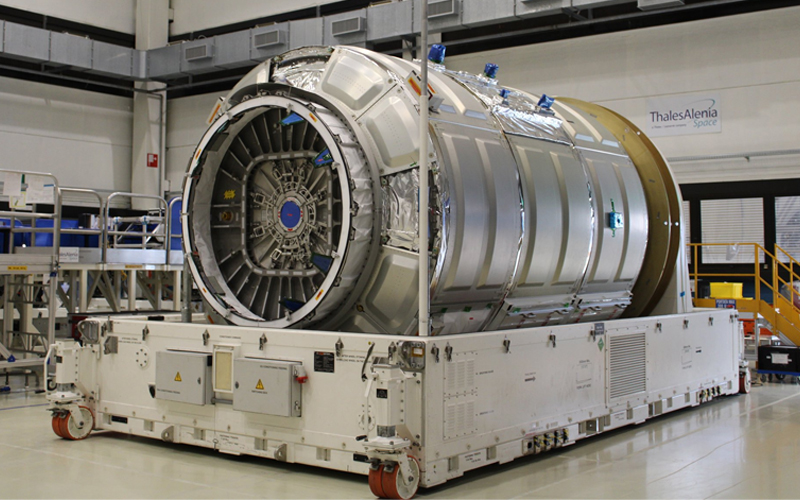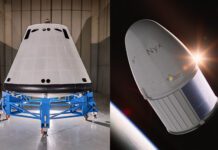
Thales Alenia Space has confirmed that the pressurized module for the 21st Northrop Grumman Cygnus Spacecraft is on its way to US shores. The spacecraft will be launched aboard a SpaceX Falcon 9 rocket on a mission to bring cargo to the crew of the International Space Station.
The Cygnus cargo spacecraft consists of two main elements: the service module, which is built by Northrop Grumman, and the Pressurized Cargo Module (PCM), which is built in Turin, Italy, by Thales Alenia Space. The Italian-made PCM offers capacity for payloads of up to 3,750 kilograms within a volume of 27 cubic metres.
Thales Alenia Space was initially tapped by Orbital Sciences Corp in 2009 to produce the spacecraft’s PCM, with a €180 million contract for the first nine modules. At the time, Orbital’s executive vice president for advanced programs, Antonio Elias, stated that the production of the modules in Europe would only continue if it proved to be the most cost-effective approach. That was 16 years ago.
On 15 May, Thales Alenia Space announced that the PCM for the 21st Cygnus spacecraft had begun its journey across the Atlantic. At the same time, the company is working to complete PCM 22, which is already undergoing integration in the company’s clean room in Turin.
Mission B Cygnus Upgrade
In August 2023, Northrop Grumman announced that it was working on an upgraded version of the Cygnus spacecraft called the “Mission B” variant. The variant sees the pressurized payload module lengthened by 1.5 metres, increasing its capacity to 5,000 kilograms with a volume of 36 cubic metres. This version of the spacecraft will be launched in mid-2025 as the 23rd Cygnus mission and the first mission aboard the new Antares 330 rocket.
According to a 28 March Thales Alenia Space update, the company has already completed the primary structure of the first upgraded version of the PCM. A pressure test is expected this autumn to verify the module’s structural integrity, after which assembly, integration, and testing can begin.




